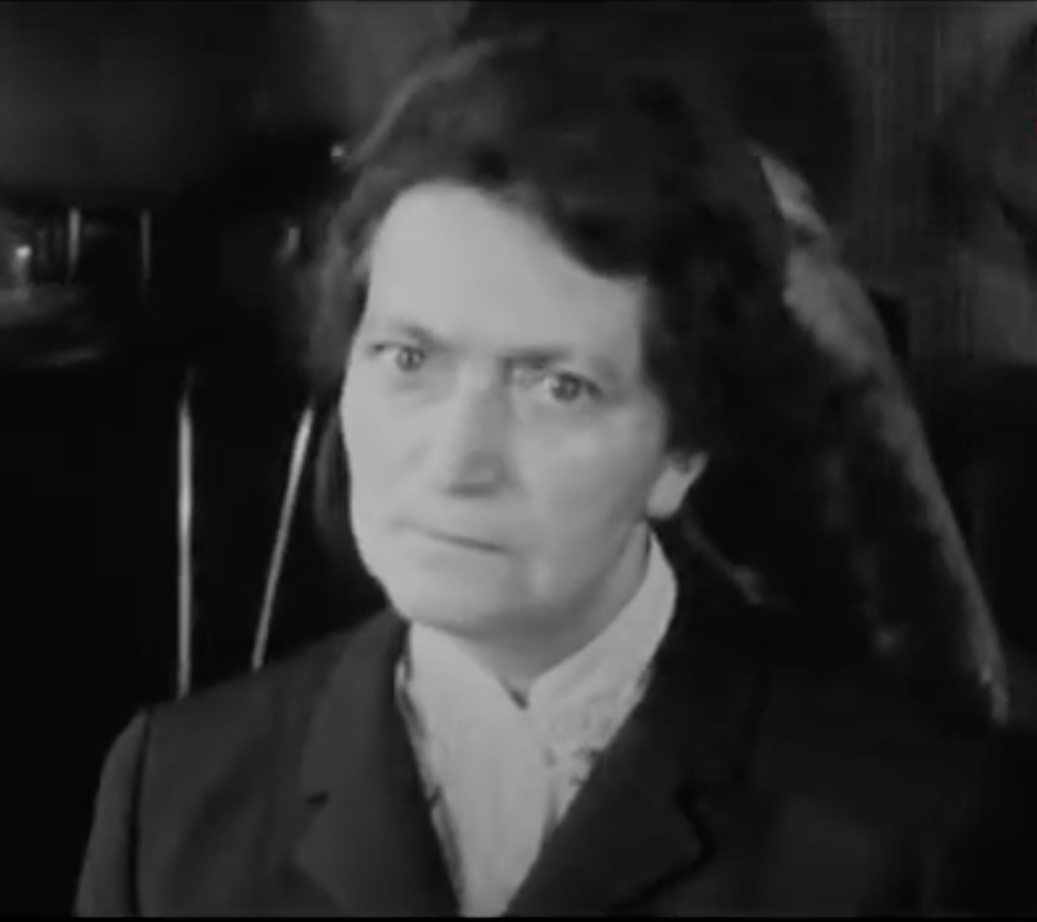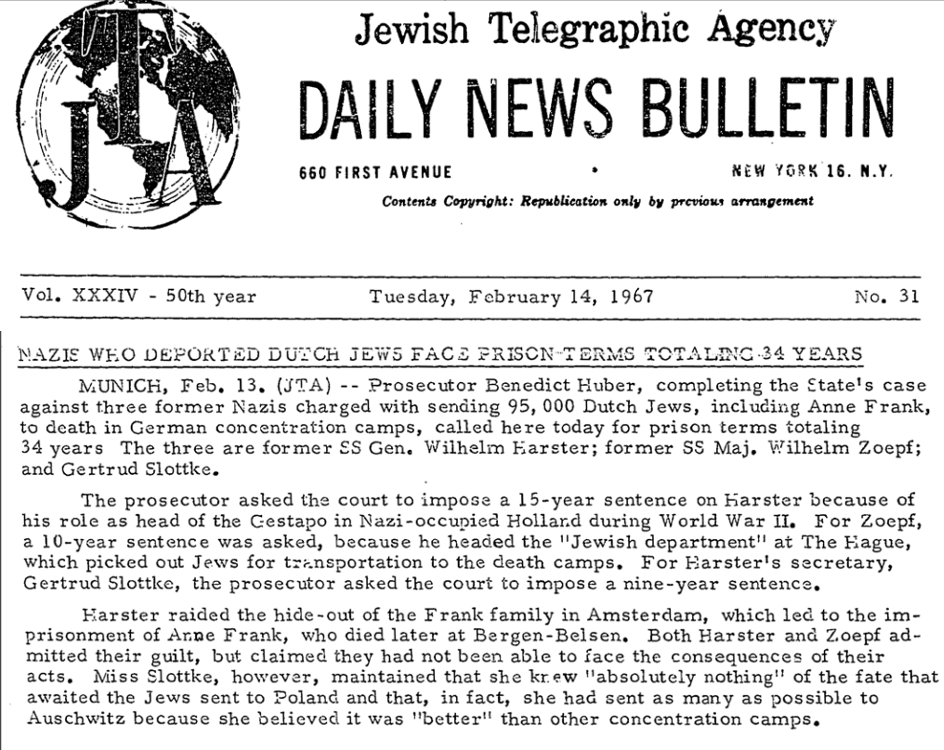The Woman Convicted of Killing Anne Frank
Written by Kim van Alkemade

Among the dead were Anne Frank and her family. Among the three prosecuted Nazis was a woman, Gertrud Slottke.
Though Gertrud Slottke’s job title was “secretary,” in Victims & Survivors: The Nazi Persecution of the Jews in the Netherlands 1940-1945, author Bob Moore writes that Slottke had a “role within the system [that] was out of proportion to her lowly rank.” Philip Mechanicus, a Dutch journalist who chronicled his imprisonment in Westerbork, the transit camp where Dutch Jews were warehoused before being sent to Auschwitz and other concentration camps, was told: “The Hague and Fräulein Slottke are arranging all these transports.” Slottke, who joined Hitler’s National Socialist Party in 1933, personally managed the Byzantine system of “exemption stamps” that kept desperate people scrambling for survival…up to the day she cancelled their stamps and put them on the transport list. Etty Hillesum, in the diary she kept during her imprisonment at Westerbork, wrote: “They are so indescribably efficient in this utter hell.”

In my novel, Counting Lost Stars, I imagined one of my characters tasked by Fräulein Gertrud Slottke with creating a coded punch-card for each person transported out of the Netherlands. In the novel, I based my description of Slottke on photographs of the real woman, as having a face that is “strangely smooth, as if neither smile nor frown has ever creased its skin.” When my character begs not to be sent to Bergen-Belsen, Slottke forces her to make a terrible choice: “I have tomorrow’s transport list here. There is a freight car attached to the train that will be decoupled at Hanover and sent on to Auschwitz…The choice is yours.”

Anne Frank and her family were transported from Holland on the last train to Auschwitz. The documentary “The Last Seven Months of Anne Frank” reveals the horrors of her fate. In February 1967, Gertrud Slottke was convicted and sentenced to five years in prison for the murder of 83,000 Dutch Jews. The New York Times reported that the judge in the case chose not to impose life imprisonment for any of the convicted murderers because he “took into account that, at the time, they were doing their duty, that they were now older and that since the war they had lived an orderly life.”
Gertrud Slottke’s sentence was suspended in 1971 and she was released from prison out of compassion for a neurological illness. She died later that year at the age of sixty-nine. Anne Frank died of starvation and disease after being relocated from Auschwitz to Bergen-Belsen concentration camp. She was fifteen years old.

